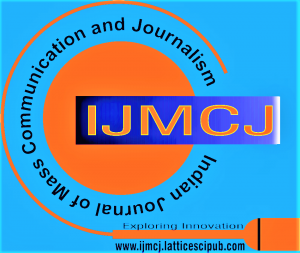![]()
A Study on How Social Media FOMO (Fear of Missing Out) Impacts the Gen Z Audience
Debangana Chakrabarti
Debangana Chakrabarti, Assistant Professor, Department of Media Science, NSHM Knowledge Campus, Kolkata, India.
Manuscript received on 19 July 2024 | Revised Manuscript received on 27 July 2024 | Manuscript Accepted on 15 September 2024 | Manuscript published on 30 September 2024 | PP: 1-6 | Volume-4 Issue-1, September 2024 | Retrieval Number: 100.1/ijmcj.E108303050924 | DOI:10.54105/ijmcj.E1083.04010924
Open Access | Editorial and Publishing Policies | Cite | Zenodo | OJS | Indexing and Abstracting
© The Authors. Published by Lattice Science Publication (LSP). This is an open-access article under the CC-BY-NC-ND license (http://creativecommons.org/licenses/by-nc-nd/4.0/)
Abstract: Generation Z, or Gen Z, refers to people born between 1995 and 2010, often known as “zoomers,” the first generation to fully embrace the internet. This paper focuses on the impact of socialmedia-induced Fear ofMissing Out (FOMO) on Generation Z, blending with the characteristics of digital nativity and extensive engagement with social media platforms. Fear of Missing Out, or FOMO, was uniquely introduced in 2004 with the rise of social networking sites. It centers on anxiety and how, for Gen Z, this plays a pivotal role in making one feel absent from rewarding experiences. This study delves into the effects on mental health, psychological well-being, self-esteem, and life satisfaction. It explores social media analytics regarding usage, compulsive checking, behavioural consequences, following trends, and real-life social interactions. The findings highlight the need for strategies to mitigate FOMO’s adverse effects, promoting healthier social media habits and fostering a more balanced approach to digital consumption.
Keywords: FOMO, Social Media, Media, Anxiety.
Scope of the Article: Media Studies
